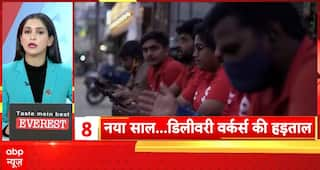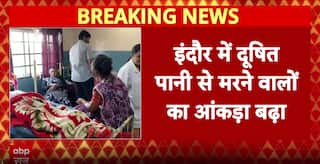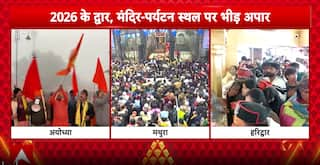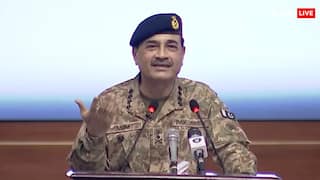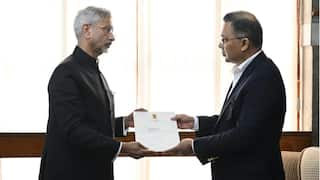Explorer
Did Amitabh's exit from politics lead to Rajiv's fall in 1989?
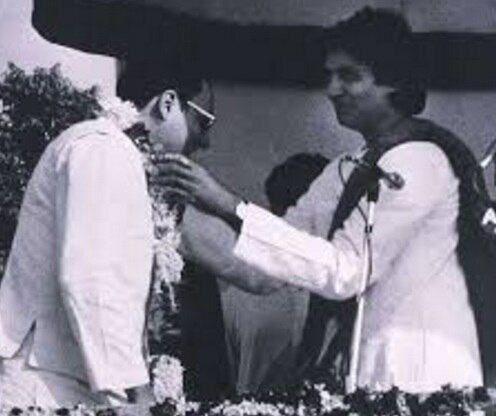
Amitabh was barely four when he was introduced to Rajiv, who was two then. There was a fancy dress party at the Bachchans’ Bank Road residence in Allahabad at which Rajiv came dressed as a freedom fighter.
The Bachchans’ tale of friendship with the Nehru-Gandhis dates back to Anand Bhavan, Allahabad. Indira was still unmarried and Sarojini Naidu had introduced poet Harivansh Rai Bachchan and his Sikh wife Teji — Amitabh’s parents — to Jawaharlal Nehru and his daughter as “the poet and the poem”.
Amitabh was barely four when he was introduced to Rajiv, who was two then. There was a fancy dress party at the Bachchans’ Bank Road residence in Allahabad at which Rajiv came dressed as a freedom fighter.
In an interview, Amitabh had recalled: “Ma (Teji) says he messed up his pants. We were all such tiny kids then, absorbed in our little games that it did not seem a big deal that Pandit Nehru’s grandson was in our midst.”
When Nehru moved to New Delhi’s Teen Murti Bhavan as India’s first Prime Minister, Rajiv and his brother Sanjay were often spotted playing with the Bachchan siblings Amitabh and Ajitabh along with Kabir Bedi and Adil Shaharyar, the son of Indira Gandhi's aide Mohammed Yunus.
While Rajiv and Sanjay were studying at Doon School, Amitabh and Ajitabh were at Nainital’s Sherwood. During their holidays in New Delhi, which fell around the same time, the boys met and swam every day at the pool of Rashtrapati Bhavan.
Rajiv and Sanjay exposed Amitabh to avant garde cinema when European films were specially screened at Rashtrapati Bhavan for the Nehru-Gandhi family. Amitabh r
Indira’s close aide Yashpal Kapoor was extremely fond of Amitabh. Kapoor, more famous for toppling Opposition Governments in the States, is said to have tried getting Amitabh to Delhi’s prestigious St Stephen’s College. For some reason, Amitabh did not join, preferring to move to Kirorimal College (perhaps due to a better course option) but his younger brother Ajitabh read economics at St Stephen’s.
Amitabh’s first break in Bollywood was in KA Abbas’s Saat Hindustani, based on the liberation of Goa. Abbas was considered close to Indira, the then Prime Minister, and there were whispers that she had put in a word for the struggling actor. But Abbas stoutly denied having acted at Indira’s behest.
Harivansh Rai, later to become a Rajya Sabha member, was requisitioned in the foreign office by Nehru’s Government while Teji was made director of the Film Finance Corporation in 1973. This was the time when Amitabh got married to Jaya. The guest list was extremely short, but Sanjay was present, representing the Gandhis.
When Amitabh emerged as an actor, Rajiv would often visit him on the sets, extremely unobtrusive, waiting patiently till he completed a shot.
Amitabh recalled: “His nature was that he would never misuse his family name. More often than not, Rajiv would not disclose his surname, fearing the distance it would create between him and the common man.”
Then came the Emergency. Amitabh, who was frequently seen in Sanjay’s company, faced the media's wrath for supporting it. On April 11, 1976, Delhi hosted a function called 'Geeton Bhari Sham', ostensibly to raise money for Sanjay and Rukhsana Sultana (actress Amrita Singh’s mother)’s controversial family planning programme. Both Amitabh and Jaya were present in the company of Sanjay.
Around that time when Indira’s Emergency information and broadcasting minister Vidya Charan Shukla was clamping down on violence in Hindi films, came Ramesh Sippy’s Sholay. Writers Salim-Javed and the rest were tense if the film would pass the censor board. Amitabh’s association came in handy as the otherwise intimidating Shukla cleared it with minor cuts, including a change in the climax.
Throughout the 19-month-long Emergency, Amitabh remained silent on the ban imposed on Kishore Kumar by All India Radio and Doordarshan and the ostracisation of the likes of Pran and Dev Anand, both outspoken critics of the Government.
Film journalism faced stiff censorship where even a gossip item about a young Amitabh and the sensational Zeenat Aman was not tolerated.
After Sanjay’s death, the entry of Rajiv saw Amitabh offering his signature voice at the 1982 Asian Games opening ceremony in Delhi’s Jawaharlal Nehru Stadium. Rajiv, the chief organiser, sat in the front row as Amitabh anchored the show.
Following the Bofors uproar, Amitabh, an MP from Allahabad, left politics, disillusioned. The superman was accused of being a middleman. Amitabh fought for his honour and won a protracted legal battle, but he could not sever his links with politics.
Amitabh’s parting with the Gandhis singularly contributed to Rajiv’s downfall as the Allahabad Lok Sabha by-election in 1987 gave a fragmented opposition a sense that together they could humble the Congress which then had 413 MPs in the 542-member Lok Sabha.
Rasheed Kidwai is the Associate Editor with The Telegraph. His Twitter handle is @rasheedkidwai
Disclaimer: The opinions, beliefs and views expressed by the various authors and forum participants on this website are personal and do not reflect the opinions, beliefs and views of ABP News Network Pvt Ltd.
Follow Blog News on ABP Live for more latest stories and trending topics. Watch breaking news and top headlines online on ABP News LIVE TV
View More








